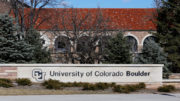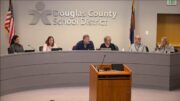What’s “fake news” and what’s not? You might forgive the public for not knowing the difference these days, given how often that term is tossed about.
Because media literacy is an issue both nationally and locally, it was the ideal topic for a Sunshine Week panel called “Getting to the truth in an age of alternative facts.” The Colorado Freedom of Information Coalition hosted a lively discussion the evening of Mar. 15 in conjunction with 9NEWS and the Colorado Society of Professional Journalists.
Sunshine Week, Mar. 12-18, is an annual nationwide celebration of your right of access to public information. The CFOIC panel, moderated by 9NEWS anchor Kyle Clark, began with a segment on Clark’s “Next” program and continued on Facebook Live.
Panelists included: Jay Seaton, publisher of The Daily Sentinel of Grand Junction; Bob Steele, Poynter Institute scholar; Sen. Tim Neville, R-Littleton; Linda Shapley, Denver Post managing editor; Luis Toro, Colorado Ethics Watch executive director; Tony Kovaleski, Denver7 investigative reporter; Corey Hutchins, Columbia Journalism Review correspondent and Colorado Independent journalist; Anastasiya Bolton, 9NEWS investigative reporter; and Ari Armstrong, libertarian writer.
A highlight: Seaton said he is still preparing a lawsuit against Sen. Ray Scott, R-Grand Junction, for tweeting that a Sentinel editorial was “fake news.”
Neville said fake news is “in the eye of the beholder.” Sometimes, he said, the truth is “buried under a headline that is extremely sensational.”
Regarding his dispute with Scott, Seaton said, “I believe a court looking at this would say fake news is not in the eye of the beholder. Rather, that term is intended to diminish the speaker.”
Watch the entire panel below.
Follow the Colorado Freedom of Information Coalition on Twitter @CoFOIC. Like CFOIC’s Facebook page. Do you appreciate the information and resources provided by CFOIC? Please consider making a tax-deductible donation.




